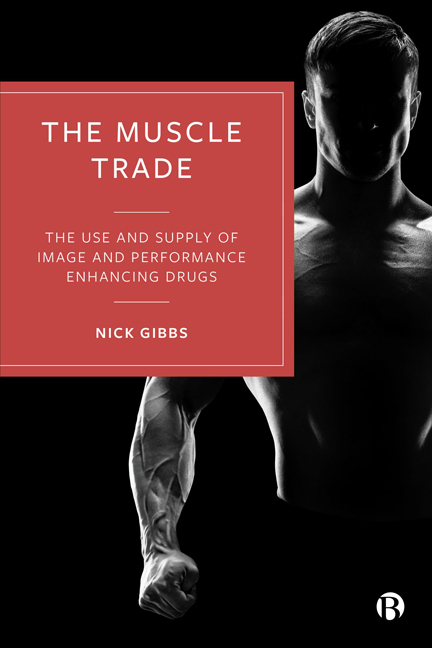Book contents
6 - The Pleasures of Consumption: The Curious Case of Phillip
Published online by Cambridge University Press: 28 March 2024
Summary
Following on from the investigation of instrumentality, competitiveness, and hyper-conformity, this chapter turns to Mulrooney et al’s (2019: 3) contention that an acknowledgement of pleasure constitutes ‘an essential part of a coherent and reasoned response to steroid consumption’. As such, the following analysis will examine the chemical, symbolic, and psychic pleasures of IPED consumption through the case study of Phillip, the project’s oldest participant and ardent ‘lifestyle’ user.
Introducing Phillip
Arriving uncharacteristically early to the retail park which housed the Costa Coffee I was to meet Phillip at, I turned off the car engine and instinctively checked my phone. As the drone of BBC Radio Potsford’s daily phone-in was cut short, I messaged Phillip on Facebook to let him know of my arrival. No sooner had I sent the message, Phillip had replied to say that he was sat inside by the window, having still managed to beat me there. At this, I picked up my Dictaphone and other essentials and rushed through the icy air into the refuge of the coffee shop.
Phillip waved me down immediately, his dyed black hair shimmering under the glow of a nearby lamp as he sipped his coffee. Broad-shouldered and immaculately dressed, he clasped my hand in a firm handshake and, once I’d ordered and received my drink, broke energetically into a sweeping monologue about his enthusiasm for my area of research, before grilling me on my methodological approach and academic career plans. Initially taken aback by this beguiling start, we soon settled into the well-versed debate around the relative worth of qualitative and quantitative research and my rather messy approach to data collection. Dictaphone set to record and settled into my flimsy metallic chair, it was time to interview this man whom Paul had assured me would add something ‘different’ to my data. (Extract from fieldnotes, 11/03/20)
The first point to mention about Phillip was his choice of career, which immediately explains his fascination with the minutiae of my methodology. Nicknamed ‘The Doc’ in Muscle Sanctuary, Phillip is a retired biology professor whose illustrious academic career has seen him employed by several prestigious universities in the UK.
- Type
- Chapter
- Information
- The Muscle TradeThe Use and Supply of Image and Performance Enhancing Drugs, pp. 80 - 92Publisher: Bristol University PressPrint publication year: 2023

